How Humidifiers Can Improve Comfort During Florida’s Dry Season
Florida is known for its warm, humid climate, but even...
Air conditioning is essential for comfort in Florida’s hot and humid climate. A reliable AC system keeps homes and businesses cool, maintains indoor air quality, and protects furniture and electronics from heat and humidity. However, like any mechanical system, air conditioners age and their efficiency declines over time. Knowing when to replace an aging AC system can save money on repairs, prevent breakdowns during peak summer months, and improve energy efficiency.
Most central air conditioning systems last between 10 and 15 years, depending on factors such as usage, maintenance, and quality of installation. Systems that receive regular maintenance tend to last longer, while poorly maintained units may fail sooner. Understanding the typical lifespan of your system helps homeowners and business owners plan for replacement before a major failure occurs.
Several indicators suggest it may be time to replace your AC system. Being aware of these signs can help prevent uncomfortable and costly situations.
Frequent Repairs and Rising Costs
An aging AC system often requires repeated repairs. Minor issues like refrigerant leaks, faulty compressors, or failing motors can become more frequent over time. If repair costs approach 50% of the price of a new system, it may be more cost-effective to replace the unit entirely. Regular breakdowns also disrupt comfort and may signal underlying issues that cannot be fully resolved with repairs.
Reduced Cooling Efficiency
Older AC systems may struggle to maintain consistent indoor temperatures. You may notice:
Reduced efficiency often increases energy bills. Upgrading to a modern, energy-efficient system can lower costs while providing more reliable cooling.
Rising Energy Bills
As air conditioners age, they lose efficiency. Older components such as compressors, fans, and refrigerant coils may work harder to achieve the same cooling output. A sudden or gradual increase in monthly energy bills without an increase in usage is a common sign that your AC system is no longer performing efficiently.
Unusual Noises or Odors
Strange sounds or smells coming from your AC unit can indicate mechanical failure or mold growth. Common noises include:
Odd odors may signal mold inside ducts, clogged filters, or electrical issues. While some problems can be repaired, persistent noises and odors often point to a system nearing the end of its lifespan.
Excessive Humidity or Poor Air Quality
Older AC units may struggle to remove humidity from the air effectively. High indoor humidity can make rooms feel warmer, encourage mold growth, and affect comfort. Additionally, aging units may circulate dust, allergens, and other pollutants, reducing indoor air quality. Upgrading to a new system with modern filtration and humidity control improves health and comfort.
Frequent Cycling On and Off
If your AC frequently turns on and off, known as short cycling, it may indicate problems such as:
Short cycling reduces efficiency, increases wear and tear, and may ultimately shorten the life of the system. Replacement may be the most effective solution if short cycling persists despite repairs.
Modern AC systems are more energy-efficient, environmentally friendly, and quieter than older models. Features such as variable-speed compressors, smart thermostats, and enhanced filtration provide benefits beyond cooling, including:
Replacing an aging AC system allows homeowners to take advantage of these technological improvements, which can offset initial costs over time.
When deciding whether to repair or replace an aging AC system, consider:
If repairs are frequent, costs are rising, or efficiency is declining, investing in a new system is often the smarter long-term choice.
Professional guidance ensures that your replacement meets your home or business needs and provides reliable cooling for years to come.
Recognizing the signs of an aging AC system in Florida is essential to avoid unexpected breakdowns, high energy bills, and discomfort. Frequent repairs, rising costs, reduced efficiency, unusual noises, poor humidity control, and declining air quality are key indicators that replacement may be necessary. Consulting with an experienced HVAC professional can help determine the best time to replace your system, select the right unit, and ensure proper installation. By addressing aging AC systems proactively, homeowners and businesses can maintain comfort, protect their investment, and enjoy reliable cooling year-round.
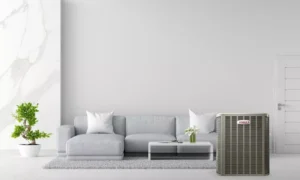
Florida is known for its warm, humid climate, but even...
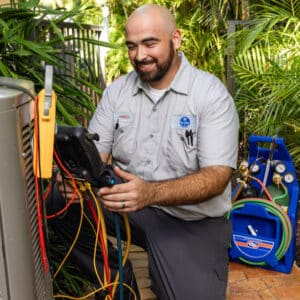
Florida homeowners rely on air conditioning more than most parts...
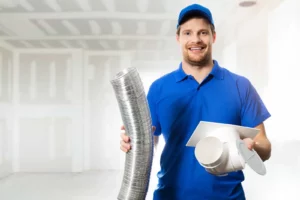
Indoor air quality is a major concern for many Florida...

Indoor air quality, often abbreviated as IAQ, plays a crucial...
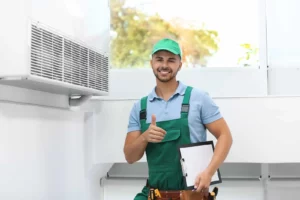
Installing a new HVAC system is a significant investment in...
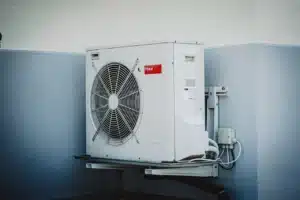
For many homeowners in Florida, the HVAC system is the...